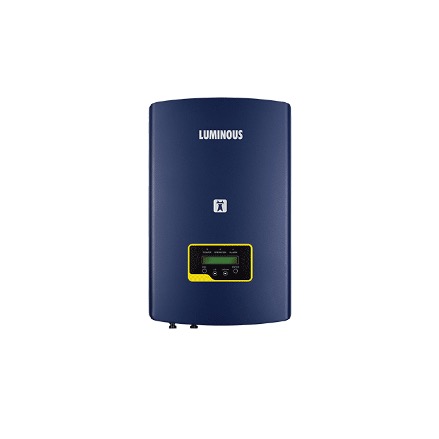Getting a loan can be a tiring process. To help potential customers with their loan process, there are agents who handle filling the form to submitting the documents. When DSAs help people with their loans, DSA gets a commission on each loan that is availed through them.
Becoming a DSA can be a good opportunity for individuals who are looking for a side income or earning extra income without making any investment on their own.
What is DSA?
Direct Selling Agent is DSA full form, refers to an individual who works for a bank or a non-banking financial firm, or NBFC. DSA agents are bank or NBFC employees tasked with finding potential loan applicants. When a loan application is routed through a DSA loan agent, the applicant’s loan application and all administrative requirements are handled by them. Despite the fact that DSA loan agents work for the bank or NBFC they represent, they are not officially recruited employees of the organization. They get compensated for each loan application they submit through their referral code.
The Procedure of Becoming a DSA Agent
You need to follow the registration procedure to become a DSA:
- Submit your application on the bank or NBFC’s official website of your choosing.
- Your bank or NBFC will contact you for documentation verification.
- The bank or NBFC’s legal staff will begin the due procedure by reviewing your documentation, previous credit history, and credit score.
- Once all of the essential paperwork and information has been checked, the bank or NBFC will send the DSA agreement if they are happy with your application.
- You need to sign the contract and then submit it.
- Once approved, a referral code will be issued by the bank or NBFC that is specific to you. You will be required to use this referral code in order to earn a commission.
What documents are needed to register as a DSA?
The documents required for verification may differ from one institution to the next. In general, you must provide the following documents to register as a loan DSA partner with a bank or NBFC:
| Photograph | Two recent passport-sized photographs. |
| ID proof:
|
· PAN card
· Aadhaar card · Voters ID · Passport |
| Address proof (individual)
|
· Aadhaar card
· Voters ID · Passport · Any utility bill of last six months |
| Address proof (institution)
|
· Any utility bill of last six months
· Business registration form |
| Bank Details | Bank transaction details or statements of the last three months from the date of the DSA loan agent application. If you are applying as an individual then your details of as a firm then details of the firm. |
| Qualifications | All Educational qualification certificates (Not required at many banks and NBFCs) |
| IT | Recent form number 16 of ITR from certified CA. |
| For institutions | If you are applying as an institution, then you need to require the firm’s registration details. |
What are the qualifying requirements for DSA registration?
The eligibility criteria of DSA agents are very minimum. In order to become a DSA loan agent, you do not need to have any subject-specific degree. Eligibility requirements may differ from one institution to the next. However, there are basic eligibility requirements that potential DSA must adhere to are as follows:
- You must be well-versed in the subject.
- You must be at least 18 years old.
- You must be a citizen of India.
- You must have a favorable credit history and a high CIBIL score.
FAQs
- Is DSA compensated by the customer?
Banks or NBFCs pay DSAs commissions on loans, not the other way around. In fact, some banks or NBFCs impose strict rules against DSA loan agents taking commissions from customers.
- Is it possible for me to work as a DSA loan agent for numerous banks or NBFCs at the same time?
No, you cannot work for numerous banks or NBFCs at the same time as a DSA loan agent. When you complete your DSA registration, your bank or NBFC will send you an agreement to sign. After signing the legally binding document, you become their commissioned employee. Therefore, you must stick with one bank or NBFC. You can, however, work in any other field or profession.
- How much does a DSA loan agent get paid for each referral?
The commissions that DSA loan agents gain from personal and commercial loans are the source of their income. Each loan normally comes with a fee of 1% of the loan amount. The commission of 1% might rise or fall depending on the size of the loan. Depending on the institution, each loan over 30 lacs may earn you a fee of 1.5 percent to 3%. This commission is paid after the loan is availed to the borrower, preferably on the same day.
- Do I need to invest money in a bank or NBFC in order to become a DSA loan agent?
No, you do not need to invest any money in order to become a DSA loan agent.
- Can non-banking or non-finance professionals become DSA loan agents?
Yes, any individual with any degree or career can become a DSA loan agent. Even students can become DSA as a way to earn extra income.
- Is there a minimum age requirement to work as a DSA agent in India?
Yes, you should have attained 18 years of age to be a DSA agent in India.
- Do I need to have a bank account in the bank of which I wish to become a DSA?
It is not mandatory before becoming a DSA. However, banks can ask you to open a bank account for commission deposits.
- As a DSA, will I get the benefits of the bank employees?
No, DSAs are not hired as employees of the bank or NBFCs rather work as a partner. Therefore, they do not get the benefits similar to bank employees.
- Do I need to have a good CIBIL Score to be a DSA agent?
CIBIL Score reflects your financial history as well as your trustworthiness to bank or NBFC. That’s why it is important to have a good CIBIL Score.
- Is working as a DSA loan agent a good career choice?
Yes, provided you possess the necessary credentials to work as a DSA loan agent. The loan type doesn’t matter. If the loan is availed under your referral ID, then you benefit from it. Your earnings may increase or decrease over the years depending upon the number of clients you get.






